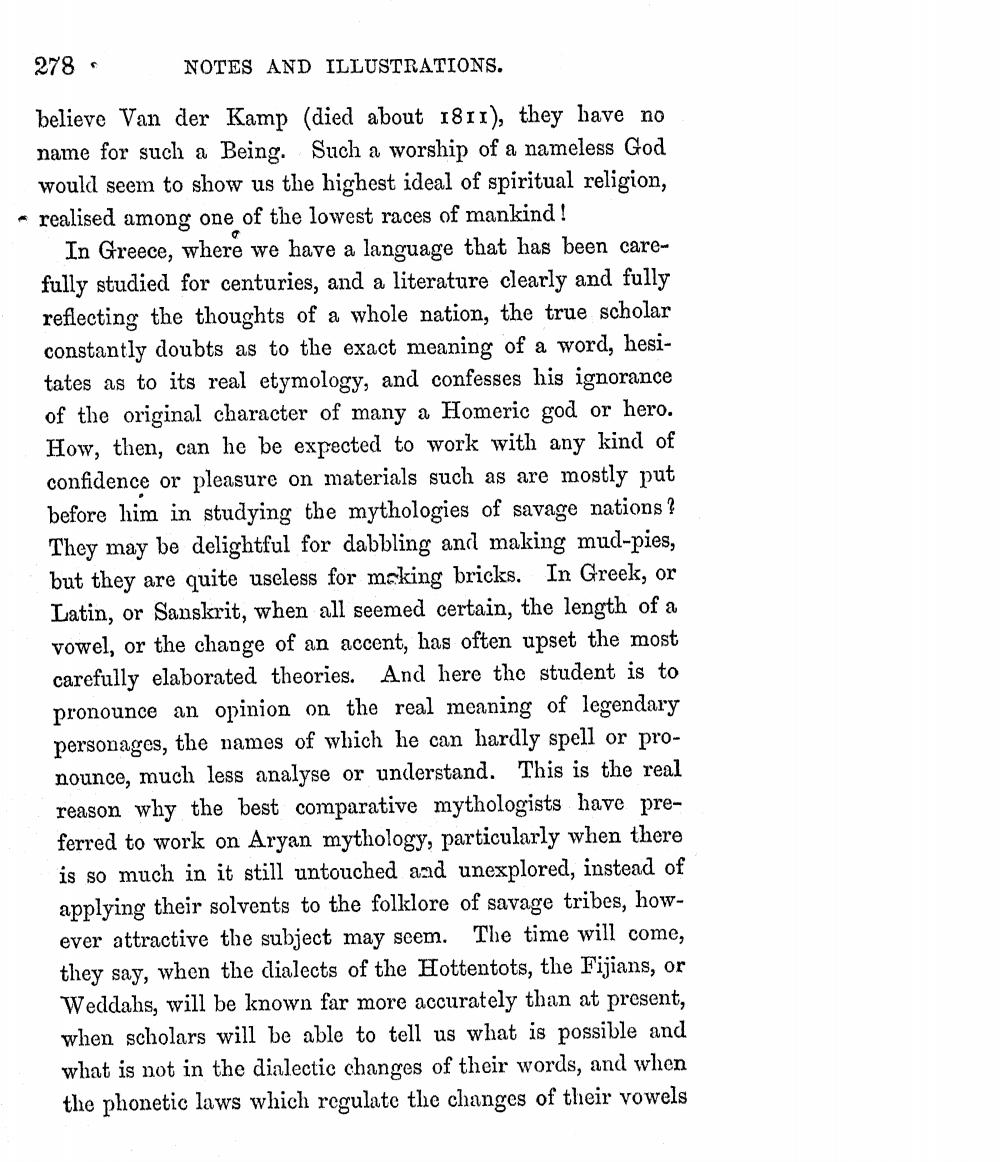________________
278
believe Van der Kamp (died about 1811), they have no name for such a Being. Such a worship of a nameless God would seem to show us the highest ideal of spiritual religion, realised among one of the lowest races of mankind!
o
In Greece, where we have a language that has been carefully studied for centuries, and a literature clearly and fully reflecting the thoughts of a whole nation, the true scholar constantly doubts as to the exact meaning of a word, hesitates as to its real etymology, and confesses his ignorance of the original character of many a Homeric god or hero. How, then, can he be expected to work with any kind of confidence or pleasure on materials such as are mostly put before him in studying the mythologies of savage nations? They may be delightful for dabbling and making mud-pies, but they are quite useless for making bricks. In Greek, or Latin, or Sanskrit, when all seemed certain, the length of a vowel, or the change of an accent, has often upset the most carefully elaborated theories. And here the student is to pronounce an opinion on the real meaning of legendary the names of which he can hardly spell or propersonages, nounce, much less analyse or understand. This is the real reason why the best comparative mythologists have preferred to work on Aryan mythology, particularly when there is so much in it still untouched and unexplored, instead of applying their solvents to the folklore of savage tribes, however attractive the subject may seem. The time will come, they say, when the dialects of the Hottentots, the Fijians, or Weddahs, will be known far more accurately than at present, when scholars will be able to tell us what is possible and what is not in the dialectic changes of their words, and when the phonetic laws which regulate the changes of their vowels
NOTES AND ILLUSTRATIONS.




